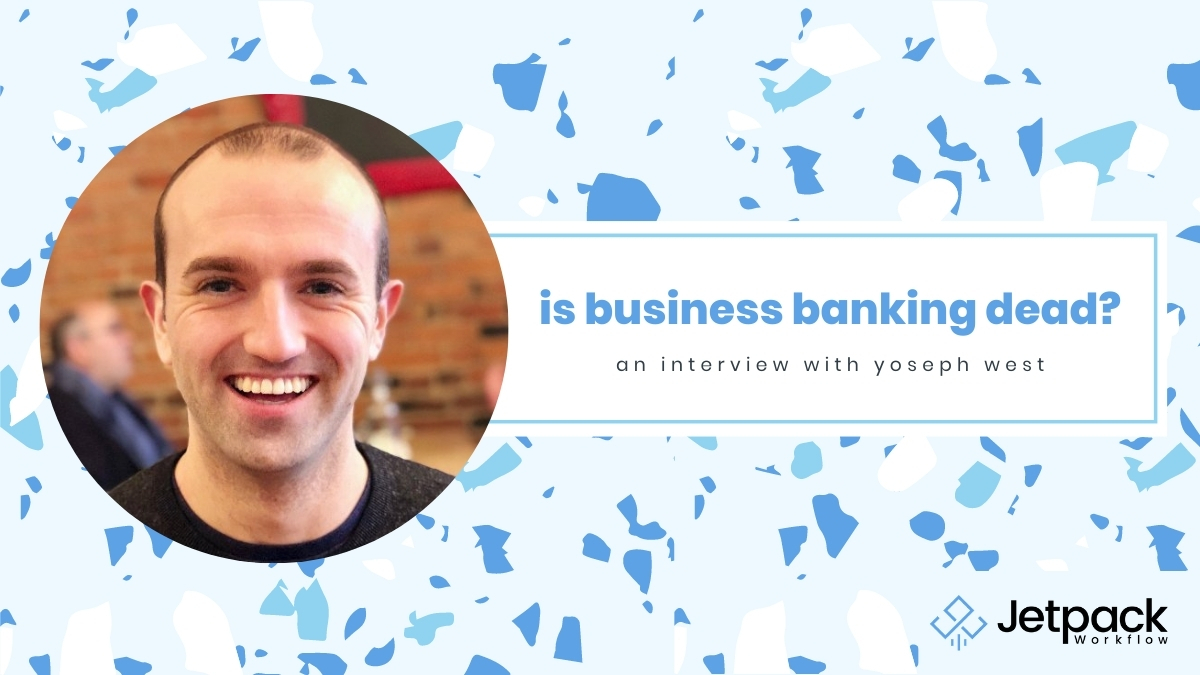Is Business Banking Dead?

In this podcast, we interview Yoseph West, and he is taking on business banking…which is a big deal! Yoseph’s vision is the start of a new trend that we must talk about. He is the co-founder and CEO of Relay Financial, but he has a rich career history: former Head of Marketing at Hubdoc and Director of Product Engagement at Wave.
Podcast
Summary
- Banking: The Central Nerve For Small Businesses
- Relay Financial Customer Promise
- Should My Clients Use This?
- Avoiding the S-Word
Related Posts
- The 7 Habits of Highly Successful Accounting Firm Owners
- Bank Feed Software for Accountants
- Software Guide & Reviews For Accountants, Bookkeepers, CPA Firm
Banking: The Central Nerve For Small Businesses
Yoseph focuses a lot on small businesses and amply understands how business is not just business: it’s personal. As such, Relay Financial seeks to be the backbone for small business growth. Yoseph specifically states, “the small business back office has changed over the last five years except for one, which is really the nerve center…small businesses like bank accounts.”
Unfortunately, the data and information that banks stow away is incredibly siloed. Relay connects key systems that further aid in creating financial visibility. Yoseph divulged that part of this system is to build an accounting automation platform within the virtual bank. This helps to create a unique value customers can appreciate. Yoseph said, “not only are we one of 15 banks in the U.S. that actually has a direct bank feed into QBO and Xero…[but] alongside Wells Fargo, Capital One, and PayPal, we’re also actually the first bank in the world to integrate into those accounting platforms to pull in on paid bills and help automate payables.“
Relay Financial Customer Promise
While Yoseph began explaining how Relay Financial works, he noted just how low the quality of bank statement information is on the banking side. Furthermore, when a business owner looks at their bank account to size up how much money they have, it’s not an accurate portrayal. While one may have $20K in the bank account, they are not able to readily tell that there are several smaller bills totalling $10K around the corner. The first rule of creating that visibility is managing your cash flow wisely. Relay helps businesses to create the financial visibility so you’re in tune with where your cash is flowing.
In addition to this visibility, Relay offers customers a three-point promise.
- Collaborate with your team. Relay allows you to collaborate with user permission, which can include a partner portal.
- Manage your bills. With Relay, you can manage all of your bills and have integrated Xero and QBO for free. You also get free ACH.
- Manage all spending from your Relay accounts. Manage access to your banking and to issue debit cards.
Speaking of security, funds deposited are FDIC-insured up to $250K because of Relay’s work with Evolve Bank and Trust, a bank in Tennessee founded in 1925. This offers an extra layer of security for firm owners, accountants, and bookkeepers.
Should My Clients Use This?
We get it: trying something different can be unsettling. There are several reasons why clients should be using Relay, but we will focus on just three, of which one has already been mentioned.
- Security. A dirty—unsecure—little secret is that accountants may share banking information in unsafe places, like notepads . Relay sidesteps this issue with the aforementioned collaboration portals. Clients can similarly get their own portal.
- Reliability. All of the data fed through QBO and Xero is standardized, and reliable; it’s software-to-software.
- The data is high quality. For example, when you deposit a check, it’s normally numbered in sequential order (1, 2, 3, 4, etc). However, with Relay, the payer’s name, amount, date, and memo are all available and passed into your accounting. Even credit card transactions are standardized with category information, which is especially a plus for accounting and bookkeeping.
Avoiding the S-Word
Without a doubt, this product offers amazing benefits to clients, but in the dark shadows still lies a looming elephant. Should clients switch from their current bank accounts to Relay? Yoseph doesn’t necessarily think so:
Treat the word switch like a four letter word. Never say it. In fact, in demos, I might say ‘never say it’…because the way we should position Relay is a complement to your existing banking.
Instead, Yoseph recommends identifying a particular challenge and using Relay to resolve that problem. Here are three uses that Yoseph focuses on when presenting Relay to potential customers.
- Accounts Payable automation with next-day payments. Centralize unpaid bills, setup financial controls with approval workflows, and pay vendors quickly and easily.
- Cash management. Customers can use Relay’s collaboration features to aid in cash or business management and enjoy audit trails on transactions.
- Expense management.
- Many people want to be able to issue cards to their employees without all of the extra hassle. Of course, as mentioned earlier, Relay allows account holders to issue cards and set spending limits.
Pro Tip: It’s generally better to highlight the value that your product or service can offer without necessarily advocating for separation from the competition. In this case, Yoseph explained that customers will begin to trust you and your product, and if they save money, that will speak volumes for your service or product:
“They never formally switch [to Relay], but organically they made the switch, and we can see that in the data. It comes across in terms of business transactions.”
With that being said, we have a list of comparable services that you can compare with Relay Financial. Comparisons are between Hubdoc, Leger Sync, Auto Entry, Bill.com, and Receipt Bank, and while they may not necessarily be exactly like Relay Financial, you can have a clear understand of why we need to talk about Relay Financial as a forerunner in a growing trend.
To learn what’s up next for Relay, listen to the full episode! If you would like to reach out to Yoseph directly, he can be reached via email at yoseph@relayfi.com.





